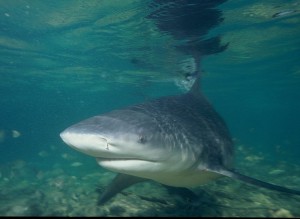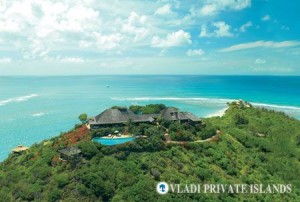In an attempt to counteract a dramatic decline of the region’s marine predator population, The British Virgin Islands has transformed its territorial waters into a safe-haven for all shark species.
The British Virgin Islands has this week become the third country in the Caribbean region to declare its territory a safe haven for sharks, following in the footsteps of The Bahamas and Honduras to establish its very own 31,000 square mile shark sanctuary, banning the commercial fishing of sharks throughout the BVI’s exclusive economic zone.
Extending across each and every one of the territory’s 60+ islands (including all privately-owned islands) and all sovereign waters, the decision to create the sanctuary forms part of a global effort to stall the dramatic decline in shark numbers and was officially announced by Kedrick Pickering – the British Virgin Islands’ deputy premier – at a conference in Belgium on May 22nd.
Population Decline – A Wider Malaise
Whilst the Caribbean might not have quite the same association with sharks as Australia, for example, readers of Private Island News will perhaps be surprised to hear that the region is, in fact, home to a broad selection of species, including the oceanic white-tip, tiger sharks, the scalloped hammerhead, Caribbean reef sharks and many more.
The diversity of the region is in grave danger, however, with many of these beautiful breeds already featured on endangered species lists – part of a wider malaise that places a quarter of the world’s shark population at risk of extinction and – according to studies carried out by the Pew Charitable Trusts – which sees an estimated 100 million creatures killed every year.
Far Reaching Consequences for Island Communities
As apex predators (animals right at the top at the food chain), sharks play an immensely important role in maintaining the delicate prey-predator balance of marine eco-systems. A dramatic reduction in shark numbers can therefore have huge repercussions – having a huge knock-on effect that stretches from the ocean environment itself right through to the nearby island communities which rely upon marine life for commercial and touristic revenues.
The importance of the shark has fortunately not gone unnoticed by Deputy Premier Kedrick Pickering. “Our people are committed to sustainably managing our resources,” he said in a recent statement. “We recognize that sharks are important to our oceans and our reefs and that the best way to manage their populations is to let them fulfill their ecological role as apex predators.”
Prominent Support
The decision to transform the region into a shark sanctuary has already been championed by Great Britain’s Sir Richard Branson, whose own famous private island abode, Necker Island, now forms part of the protected area. Long since an advocate of establishing better protection of the region’s waters and marine life, Branson issued the following statement upon hearing the good news.
“The British Virgin Islands has shown great leadership here,” said Branson in an e-mail published in The New Zealand Herald last week. “I strongly urge other countries and territories in the region to follow suit to create a Caribbean-wide sanctuary to protect these magnificent animals.”
A Caribbean Campaign with Pacific Origins
Whilst officially forming part of The Nature Conservancy’s Caribbean Challenge – an annual summit established in 2008 with the aim of bringing 15 Caribbean governments together to preserve and protect the region’s marine and coastal environment – the decision to establish a shark sanctuary actually has its roots on the other side of the world…
The Pacific Republic of Palau is a small island nation that has made a big difference to global shark stocks – the first island country to transform their territorial waters into a sanctuary, by means of the internationally acclaimed Shark Haven Act – the world’s first policy to place an outright ban on commercial shark fishing.
Despite attracting initial criticism from international fishing fleets, Pulau’s Shark Haven Act has gone onto form something of a global role model, picking up The World Future Council’s Future Policy Award in 2009 and inspiring other regions (Honduras, the Maldives, the Bahamas and now the British Virgin Islands) to follow suit and create their own shark sanctuaries.
In the words of Angelo Villagomez of Pew Charitable Trusts – it’s the proof that “small islands can have a big impact on global diversity.” Private Island News for one hopes that the BVI’s decision to get involved in this worthy campaign will further this dynamic domino effect and inspire even more marine activism.
Want to hear more about the incredible benefits of shark sanctuaries? You’ll find more details about Palau’s pioneering approach to marine conservation in Oceans & Private Islands – a brand new online collaboration between Vladi Private Islands, Private Island News and The World Future Council. We’ll be bringing you more information on this great new project across the coming week – don’t miss out!




